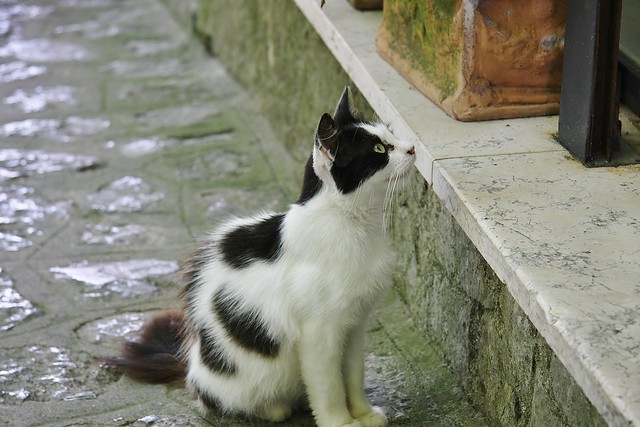Podcast: Play in new window | Download
In this Adventure we’re taking a seat to uncover the origins of the word chair.
A chair [t͡ʃɛə(ɹ)/t͡ʃɛɚ] is:
- An item of furniture used to sit on or in, comprising a seat, legs or wheels, back, and sometimes arm rests, for use by one person.
It comes from Middle English chayer/chaier(e) [ˈtʃɛi̯ər(ə)] (a comfortable seat, such as a chair or couch; a throne), from Old French chaiere (chair, seat, throne) from Latin cathedra [ˈka.tʰe.dra] (armchair, ceremonial chair, office/rank of a teacher or bishop, pulpit, chair), from Ancient Greek καθέδρα [kaˈθe.ðra] (seat, posterior, base of a column, imperial throne), from κατά [kaˈta] (down) and ἕδρα [ˈe.ðra] (seat, chair, stool, bench), from PIE *sed- (to sit) [source].
English words from the same roots include cathedra (the chair or throne of a bishop, the rank of bishop), cathedral, catastrophe, cataract and chaise (an open, horse-drawn carriage for one or two people).
Words from the same roots in other languages include cadair (chair), and cadeirlan (cathedral) in Welsh, cathaoir (chair, seat, throne) in Irish [source], and words for cathedral in many other languages [source]
The native English words for chair or seat were stool and settle. When chayer was borrowed from French their meanings changed: stool came to mean “A seat, especially for one person and without armrests.” [source], and settle, which originally meant a seat of any kind, came to mean “A long bench with a high back and arms, often with a chest or storage space underneath” [source]
I also write about words, etymology and other language-related topics on the Omniglot Blog, and I explore etymological connections between Celtic languages on the Celtiadur.
You can also listen to this podcast on: Apple Podcasts, Amazon Music, Stitcher, TuneIn, Podchaser, PlayerFM or podtail.
If you would like to support this podcast, you can make a donation via PayPal or Patreon, or contribute to Omniglot in other ways.
Radio Omniglot podcasts are brought to you in association with Blubrry Podcast Hosting, a great place to host your podcasts. Get your first month free with the promo code omniglot.












